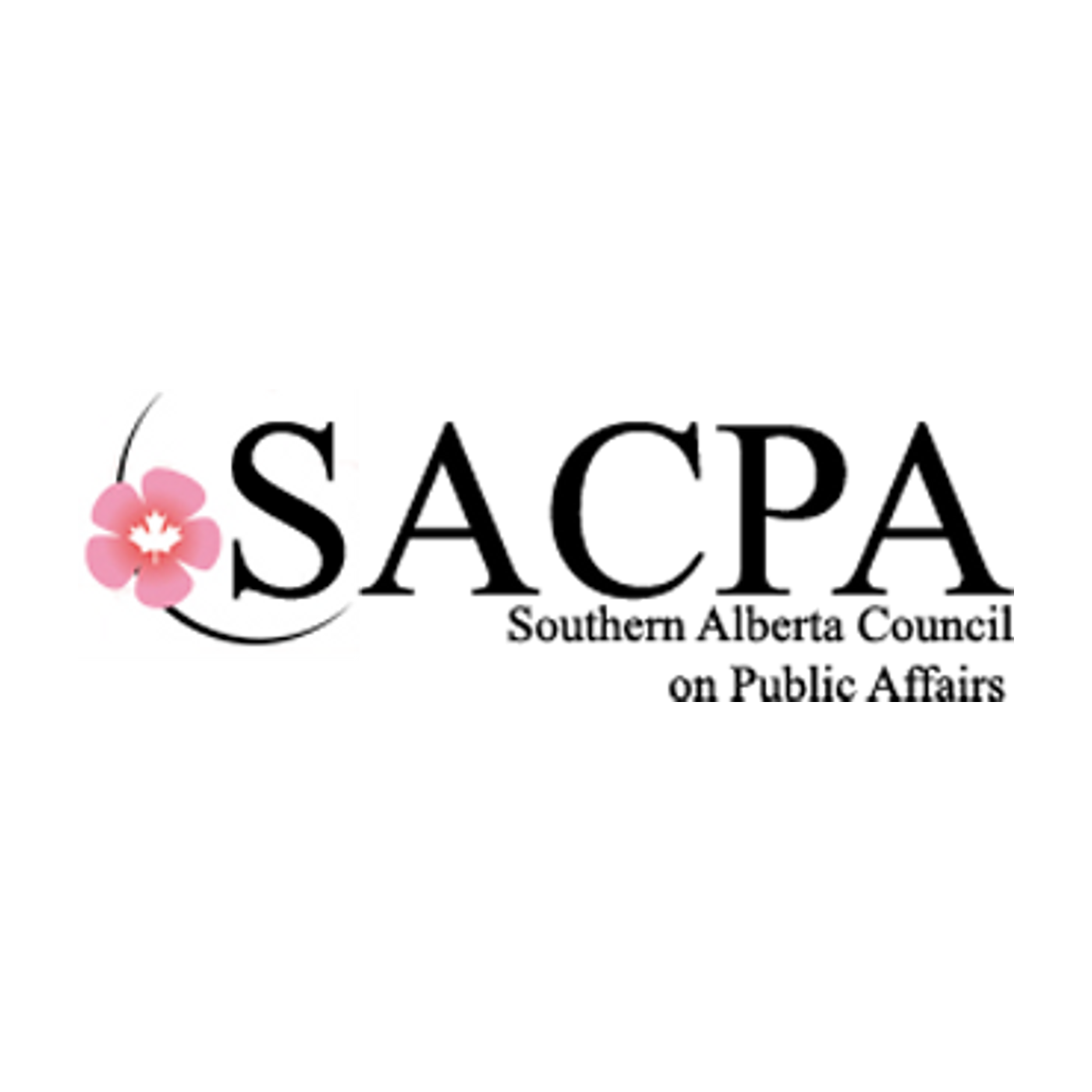
25.8K
Downloads
1378
Episodes
SACPA seeks to promote a sense of community and citizenship amongst the public. It is strictly non-partisan in its political outlook and encourages the expression of divergent viewpoints. SACPA does not take sides on the issues debated at its sessions. The opinions expressed by speakers are their own and are not necessarily shared by the Board of Directors.
Episodes
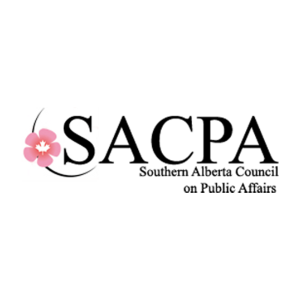
Wednesday Dec 11, 2019
Successes and Challenges for U of L Students Supporting Refugee Students (Part 2 Q&A)
Wednesday Dec 11, 2019
Wednesday Dec 11, 2019
In 2016, students at the U of L established a local chapter of the World University Service of Canada (WUSC). It is a Canadian international development non-profit organization dedicated to improving education, employment and empowerment opportunities for youth, women and refugees in more than 25 countries around the world. WUSC’s Student Refugee Program (SRP) combines refugee resettlement with opportunities for higher education. The U of L WUSC program changes the lives of young people here and around the world. Crucial to the program’s success is its unique youth-to-youth sponsorship model which empowers young Canadian students to play an active role in the sponsorship of refugee students. At U of L, students play a critical role in both the financial support and the day-to-day social and academic support to SRP students. The speakers will describe the successes and challenges they’ve encountered along the way and give thoughts to what lies ahead. Speakers: Dr. Anne Dymond and Abdullah Mouslli Anne Dymond, Ph.D., teaches art history and museum studies at the U of L. Her book, Diversity Counts: Gender, Race and Representation in Canadian Art Galleries (McGill-Queen's University Press, 2019) has been called "an impressive and sobering analysis of gender and diversity in contemporary art, and a compelling call for more inclusive curating." Anne is also active in the community. She is Co-Chair of U of L's Refugee Action Committee and faculty advisor to the WUSC student club. Both these groups support and sponsor the emigration of qualified refugees to Canada. She was awarded the University's Senate Volunteer Award and the YWCA's Woman of Distinction Award for this work. Anne also sits on the Lethbridge United Way Board of Directors. Abdullah Mouslli was the first refugee student to be sponsored by WUSC ULeth local committee. He moved to Lethbridge in 2016 and now he is pursuing a combined degree in New Media and Marketing. Abdullah worked with Lethbridge Family Services as an Arabic interpreter, co-founded a social enterprise to empower newcomer women in Lethbridge, and has been the SRP coordinator with WUSC Uleth local committee which makes him the go-to person to help refugee students settling in their new home. Moderator: Jamie MacKenzie Date: Thursday, December 12, 2019 Time: Doors open 11:30 am, presentation 12 noon, buffet lunch 12:30 pm, Q&A 1 – 1:30 pm Location: Royal Canadian Legion (please enter at north door) 324 Mayor Magrath Dr. S. Lethbridge Cost: $14 buffet lunch with dessert/coffee/tea/juice or $2 coffee/tea/juice. RSVP not required Visit the SACPA website: http://www.sacpa.ca At this session, SACPA will gratefully be accepting audience donations to U of L’s WUSC program and as well, match those donations equally.
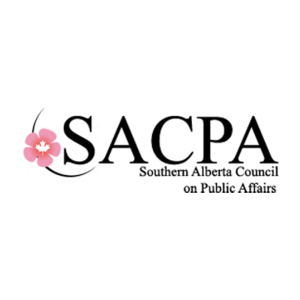
Wednesday Dec 04, 2019
Lyme disease: What are the early warning signs and is treatment effective? (Part 2 Q&A)
Wednesday Dec 04, 2019
Wednesday Dec 04, 2019
Is it MS, Lupus or immune system dysfunction? Doctors were left puzzled by Audrey Skoog’s rapidly deteriorating health. This led to specialist after specialist as well as referrals out of country and out of province. When diagnosis came, she found herself with late stage Lyme disease otherwise known as disseminated Lyme disease; this stage occurs months or even years after a tick bite, when the infection is not appropriately treated in the first or second stages. Lyme disease is caused by the bacterium Borrelia burgdorferi and rarely, Borrelia mayonii. It is transmitted to humans through the bite of infected blacklegged ticks. Typical early symptoms include fever, headache, fatigue, and a characteristic skin rash called erythema migrans. If left untreated, infection can spread to joints, the heart, and the nervous system as well as cause inflammation of the brain and spinal cord. Each year, approximately 30,000 new cases of Lyme disease are reported to the Centers for Disease Control and Prevention (CDC) in the US. However, this number is just the tip of the iceberg and the CDC is currently conducting research on evaluation and diagnostics of the disease and preliminary results suggest more than 300,000 Americans are diagnosed with the tick-borne disease each year. Lyme disease in Canada is on the rise with several thousand people affected each year and those numbers will only increase as infected ticks continue to migrate north. Speaker: Audrey Skoog In 1997 at age 17, Audrey became an unlikely advocate for social issues after having experienced youth homelessness. As a vocal consumer in the system, she was asked to speak in Ottawa on child poverty. Since then her experiences have led her to an education in psychology which led to even further adventures overseas and back here at home. Audrey has started and worked in several grassroots initiatives benefiting vulnerable populations. She has been a public speaker on topics such as housing and homelessness, addiction, and now shares her Lyme disease perspective as a consumer in the health care system. She hopes to put a human face on awareness, patient advocacy, and to share that you can still live well even when you don’t feel well. Moderator: Larry Elford Date: Thursday, December 5, 2019 Time: Doors open 11:30 am, presentation 12 noon, buffet lunch 12:30 pm, Q&A 1 – 1:30 pm Location: Royal Canadian Legion (north door) 324 Mayor Magrath Dr. S. Lethbridge Cost: $14 buffet lunch with dessert/coffee/tea/juice or $2 coffee/tea/juice. RSVP not required
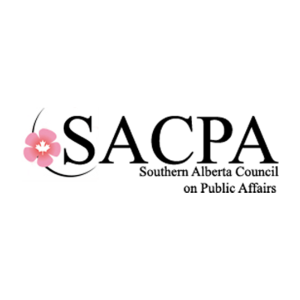
Wednesday Dec 04, 2019
Lyme disease: What are the early warning signs and is treatment effective? (Part 1)
Wednesday Dec 04, 2019
Wednesday Dec 04, 2019
Is it MS, Lupus or immune system dysfunction? Doctors were left puzzled by Audrey Skoog’s rapidly deteriorating health. This led to specialist after specialist as well as referrals out of country and out of province. When diagnosis came, she found herself with late stage Lyme disease otherwise known as disseminated Lyme disease; this stage occurs months or even years after a tick bite, when the infection is not appropriately treated in the first or second stages. Lyme disease is caused by the bacterium Borrelia burgdorferi and rarely, Borrelia mayonii. It is transmitted to humans through the bite of infected blacklegged ticks. Typical early symptoms include fever, headache, fatigue, and a characteristic skin rash called erythema migrans. If left untreated, infection can spread to joints, the heart, and the nervous system as well as cause inflammation of the brain and spinal cord. Each year, approximately 30,000 new cases of Lyme disease are reported to the Centers for Disease Control and Prevention (CDC) in the US. However, this number is just the tip of the iceberg and the CDC is currently conducting research on evaluation and diagnostics of the disease and preliminary results suggest more than 300,000 Americans are diagnosed with the tick-borne disease each year. Lyme disease in Canada is on the rise with several thousand people affected each year and those numbers will only increase as infected ticks continue to migrate north. Speaker: Audrey Skoog In 1997 at age 17, Audrey became an unlikely advocate for social issues after having experienced youth homelessness. As a vocal consumer in the system, she was asked to speak in Ottawa on child poverty. Since then her experiences have led her to an education in psychology which led to even further adventures overseas and back here at home. Audrey has started and worked in several grassroots initiatives benefiting vulnerable populations. She has been a public speaker on topics such as housing and homelessness, addiction, and now shares her Lyme disease perspective as a consumer in the health care system. She hopes to put a human face on awareness, patient advocacy, and to share that you can still live well even when you don’t feel well. Moderator: Larry Elford Date: Thursday, December 5, 2019 Time: Doors open 11:30 am, presentation 12 noon, buffet lunch 12:30 pm, Q&A 1 – 1:30 pm Location: Royal Canadian Legion (north door) 324 Mayor Magrath Dr. S. Lethbridge Cost: $14 buffet lunch with dessert/coffee/tea/juice or $2 coffee/tea/juice. RSVP not required
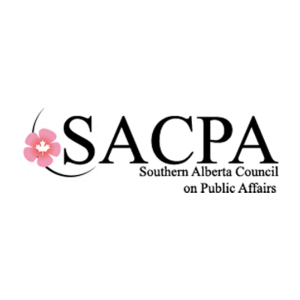
Wednesday Nov 27, 2019
Wednesday Nov 27, 2019
The average Canadian households wastes $1,760 every year in squishy cucumbers, spoiled yogurt and moldy bread. Not only does food waste have a negative impact on our pocketbooks, it’s bad for the environment as resources are wasted producing food that is never eaten. Wasted food is responsible for 8% of the world’s greenhouse gas emissions, making the reduction of food waste a key strategy in fighting climate change. Households are the second largest contributors to food waste, with 21% of food waste occurring in the home. As such, we all have an important role to play in reducing food waste to the benefit of our environment and our budgets. Speaker: Kathleen Sheppard Kathleen has been the Executive Director of Environment Lethbridge since 2015 and has more than 25 years of experience with non-profit organizations in British Columbia and Alberta, including past experience in land conservation and social planning and policy. Kathleen holds a B.Sc. in Geography and Biology from the University of Victoria and a Certificate in Voluntary and Non-profit Sector Management from Ryerson University. Kathleen currently sits as the Environment Sector representative on the board of Economic Development Lethbridge and as Sustainability Director for the Lethbridge 2020 Alberta Summer Games. Moderator: Cheryl Bradley Date: Thursday, November 28, 2019 Time: Doors open 11:30 am, Presentation 12 noon, buffet lunch 12:30 pm, Q&A 1 – 1:30 pm Location: Royal Canadian Legion (north door) 324 Mayor Magrath Dr. S. Lethbridge Cost: $14 buffet lunch with dessert/coffee/tea/juice or $2 coffee/tea/juice. RSVP not required
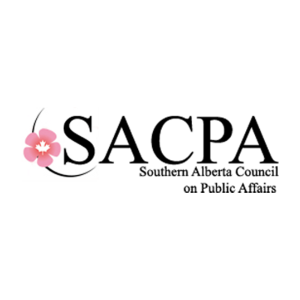
Wednesday Nov 27, 2019
Wednesday Nov 27, 2019
The average Canadian households wastes $1,760 every year in squishy cucumbers, spoiled yogurt and moldy bread. Not only does food waste have a negative impact on our pocketbooks, it’s bad for the environment as resources are wasted producing food that is never eaten. Wasted food is responsible for 8% of the world’s greenhouse gas emissions, making the reduction of food waste a key strategy in fighting climate change. Households are the second largest contributors to food waste, with 21% of food waste occurring in the home. As such, we all have an important role to play in reducing food waste to the benefit of our environment and our budgets. Speaker: Kathleen Sheppard Kathleen has been the Executive Director of Environment Lethbridge since 2015 and has more than 25 years of experience with non-profit organizations in British Columbia and Alberta, including past experience in land conservation and social planning and policy. Kathleen holds a B.Sc. in Geography and Biology from the University of Victoria and a Certificate in Voluntary and Non-profit Sector Management from Ryerson University. Kathleen currently sits as the Environment Sector representative on the board of Economic Development Lethbridge and as Sustainability Director for the Lethbridge 2020 Alberta Summer Games. Moderator: Cheryl Bradley Date: Thursday, November 28, 2019 Time: Doors open 11:30 am, Presentation 12 noon, buffet lunch 12:30 pm, Q&A 1 – 1:30 pm Location: Royal Canadian Legion (north door) 324 Mayor Magrath Dr. S. Lethbridge Cost: $14 buffet lunch with dessert/coffee/tea/juice or $2 coffee/tea/juice. RSVP not required
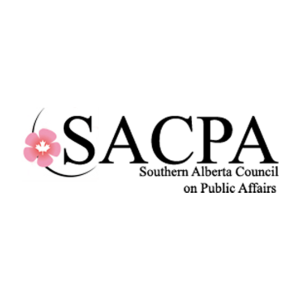
Wednesday Nov 20, 2019
Did anyone win the 2019 Canadian federal election? (Part 1)
Wednesday Nov 20, 2019
Wednesday Nov 20, 2019
Justin Trudeau's Liberal Party retained power in a close-run federal election. The Liberals won 157 seats and 33% of the popular vote, enough to retain power in a minority parliament. Opposition leader Andrew Scheer’s Conservative Party won more votes, but far fewer seats. This was the first time since 1979 that the winner of the most seats wasn’t also the winner of the most votes. The NDP did far better than the polls suggested at the beginning of the campaign, but worse than in 2015 and catastrophically worse than their record high in 2011. The Greens won 3 seats (a new high) but with a lower vote share than they won in 2008. The separatist Bloc Quebecois, who increased their seat count and their vote share considerable, might be pleased, but their vote didn’t seem driven by a desire for Quebec independence. After the election, the bad news continued, and talk of Western alienation emerged as a dominant theme of the last few weeks. So did anybody win? The speaker will unpack the results of the October 21 federal election and argue that the unusual results of the election and feelings of alienation aren’t disconnected, and that our electoral system makes our parliament look more divided than voters actually are. Speaker: Dr. Paul Fairie Paul Fairie has a PhD in Political Science from the University of Calgary, focusing on voter behaviour. He has taught politics courses at the University of Calgary since 2010 and ran The Globe & Mail Election Forecast in 2015. He is a Senior Research Associate at the University of Calgary, and tweets far too much, at @paulisci. Moderator: Jeffrey Coffman Date: Thursday, November 21, 2019 Time: Doors open 11:30 am, Presentation 12 noon, buffet lunch 12:30 pm, Q&A 1 – 1:30 pm Location: Royal Canadian Legion (north door) 324 Mayor Magrath Dr. S. Lethbridge Cost: $14 buffet lunch with dessert/coffee/tea/juice or $2 coffee/tea/juice. RSVP not required
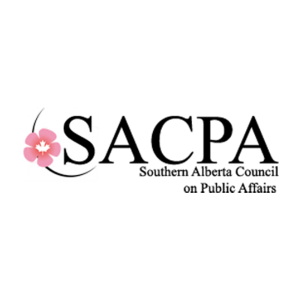
Wednesday Nov 20, 2019
Did anyone win the 2019 Canadian federal election? (Part 2 Q&A)
Wednesday Nov 20, 2019
Wednesday Nov 20, 2019
Justin Trudeau's Liberal Party retained power in a close-run federal election. The Liberals won 157 seats and 33% of the popular vote, enough to retain power in a minority parliament. Opposition leader Andrew Scheer’s Conservative Party won more votes, but far fewer seats. This was the first time since 1979 that the winner of the most seats wasn’t also the winner of the most votes. The NDP did far better than the polls suggested at the beginning of the campaign, but worse than in 2015 and catastrophically worse than their record high in 2011. The Greens won 3 seats (a new high) but with a lower vote share than they won in 2008. The separatist Bloc Quebecois, who increased their seat count and their vote share considerable, might be pleased, but their vote didn’t seem driven by a desire for Quebec independence. After the election, the bad news continued, and talk of Western alienation emerged as a dominant theme of the last few weeks. So did anybody win? The speaker will unpack the results of the October 21 federal election and argue that the unusual results of the election and feelings of alienation aren’t disconnected, and that our electoral system makes our parliament look more divided than voters actually are. Speaker: Dr. Paul Fairie Paul Fairie has a PhD in Political Science from the University of Calgary, focusing on voter behaviour. He has taught politics courses at the University of Calgary since 2010 and ran The Globe & Mail Election Forecast in 2015. He is a Senior Research Associate at the University of Calgary, and tweets far too much, at @paulisci. Moderator: Jeffrey Coffman Date: Thursday, November 21, 2019 Time: Doors open 11:30 am, Presentation 12 noon, buffet lunch 12:30 pm, Q&A 1 – 1:30 pm Location: Royal Canadian Legion (north door) 324 Mayor Magrath Dr. S. Lethbridge Cost: $14 buffet lunch with dessert/coffee/tea/juice or $2 coffee/tea/juice. RSVP not required
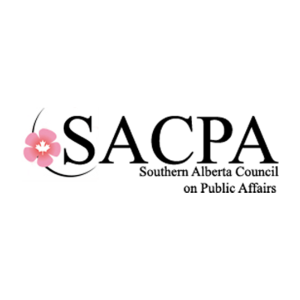
Wednesday Nov 13, 2019
What are the Opportunities and Challenges for Alberta in its 2019 Budget? (Part 1)
Wednesday Nov 13, 2019
Wednesday Nov 13, 2019
Budget 2019 reflects a commitment to responsible fiscal management and a promise to balance the budget in 4 years. It's focused on creating jobs and delivering public services and infrastructure to support private sector investment and a vibrant society. Alberta's many successive provincial deficits have created a serious financial situation and a debt burden that has reached $62.7 billion. Government spent almost $2 billion on interest (debt servicing) last year – more than what was spent on 17 out of 21 ministries. Economic growth is expected at 0.6% in 2019 reflecting market access challenges. The economy should pick up strength next year, but it will take time for the labour market to fully recover. Although growth prospects are solid, external risks are high for Alberta's trade-and-energy driven economy. Total revenue is forecast to remain flat at approx. $50 billion in 2019-20 and 2020-21, before increasing in 2021-22 and 2022-23. A fairly modest but realistic oil price outlook, along with market access issues, may impede revenue growth over the next few years. This reality arguable means spending reductions are necessary. The 2019 budget includes moderate cuts to operating spending of 2.8% over four years ($1.3 billion lower than 2018-19 levels), compared to the nearly 20% cuts Albertans saw in the 1990s. The speaker will highlight the budget opportunities and challenges and detail more specifically, how Lethbridge may be affected. Speaker: Nathan Neudorf, Alberta MLA for Lethbridge East Constituency Nathan Neudorf was elected as the Member of the Legislative Assembly of Alberta for Lethbridge-East on April 16, 2019. Mr. Neudorf is a member of the Special Standing Committee on Members’ Services, the Standing Committees on Private Bills and Private Members’ Public Bills, the Standing Committee on Families and Communities and the Standing Committee on Privileges and Elections, Standing Orders and Printing. Mr. Neudorf has extensive experience in commercial construction. He has his civil and structural engineering diploma and is a red seal journeyman carpenter and gold seal project manager. As an active community volunteer and leader, Mr. Neudorf served as the past president of the Lethbridge Construction Association and on the board of directors for the Alberta Construction Association, Alberta Construction Safety Association and Worker’s Compensation Board. Mr. Neudorf, his wife, Deanne, and their five children live in Lethbridge. In his spare time he enjoys coaching and playing soccer and baseball as well as running, landscaping and spending time outdoors. Moderator: Trevor Page Date: Thursday, November 14, 2019 Time: Doors open 11:30 am, Presentation 12 noon, buffet lunch 12:30 pm, Q&A 1 – 1:30 pm Location: Royal Canadian Legion (north door) 324 Mayor Magrath Dr. S. Lethbridge Cost: $14 buffet lunch with dessert/coffee/tea/juice or $2 coffee/tea/juice. RSVP not required
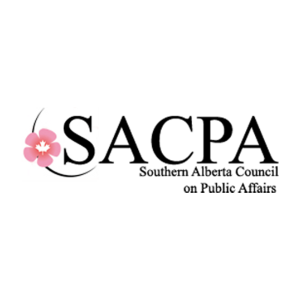
Wednesday Nov 13, 2019
What are the Opportunities and Challenges for Alberta in its 2019 Budget? (Part 2 Q&A)
Wednesday Nov 13, 2019
Wednesday Nov 13, 2019
Budget 2019 reflects a commitment to responsible fiscal management and a promise to balance the budget in 4 years. It's focused on creating jobs and delivering public services and infrastructure to support private sector investment and a vibrant society. Alberta's many successive provincial deficits have created a serious financial situation and a debt burden that has reached $62.7 billion. Government spent almost $2 billion on interest (debt servicing) last year – more than what was spent on 17 out of 21 ministries. Economic growth is expected at 0.6% in 2019 reflecting market access challenges. The economy should pick up strength next year, but it will take time for the labour market to fully recover. Although growth prospects are solid, external risks are high for Alberta's trade-and-energy driven economy. Total revenue is forecast to remain flat at approx. $50 billion in 2019-20 and 2020-21, before increasing in 2021-22 and 2022-23. A fairly modest but realistic oil price outlook, along with market access issues, may impede revenue growth over the next few years. This reality arguable means spending reductions are necessary. The 2019 budget includes moderate cuts to operating spending of 2.8% over four years ($1.3 billion lower than 2018-19 levels), compared to the nearly 20% cuts Albertans saw in the 1990s. The speaker will highlight the budget opportunities and challenges and detail more specifically, how Lethbridge may be affected. Speaker: Nathan Neudorf, Alberta MLA for Lethbridge East Constituency Nathan Neudorf was elected as the Member of the Legislative Assembly of Alberta for Lethbridge-East on April 16, 2019. Mr. Neudorf is a member of the Special Standing Committee on Members’ Services, the Standing Committees on Private Bills and Private Members’ Public Bills, the Standing Committee on Families and Communities and the Standing Committee on Privileges and Elections, Standing Orders and Printing. Mr. Neudorf has extensive experience in commercial construction. He has his civil and structural engineering diploma and is a red seal journeyman carpenter and gold seal project manager. As an active community volunteer and leader, Mr. Neudorf served as the past president of the Lethbridge Construction Association and on the board of directors for the Alberta Construction Association, Alberta Construction Safety Association and Worker’s Compensation Board. Mr. Neudorf, his wife, Deanne, and their five children live in Lethbridge. In his spare time he enjoys coaching and playing soccer and baseball as well as running, landscaping and spending time outdoors. Moderator: Trevor Page Date: Thursday, November 14, 2019 Time: Doors open 11:30 am, Presentation 12 noon, buffet lunch 12:30 pm, Q&A 1 – 1:30 pm Location: Royal Canadian Legion (north door) 324 Mayor Magrath Dr. S. Lethbridge Cost: $14 buffet lunch with dessert/coffee/tea/juice or $2 coffee/tea/juice. RSVP not required
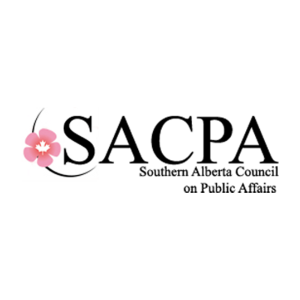
Wednesday Nov 06, 2019
Wednesday Nov 06, 2019
As the largest irrigation district by irrigated acres in Canada, St Mary River Irrigation District (SMRID) has licenses to divert water from the St. Mary, Waterton and Belly rivers. The total volume of SMRID’s allowable diversion is 722,000 ac/ft. or about 890 million cubic meters of water. On average however, the SMRID diverts only around 50 per cent of its total license. One of its licenses now allows for not only water for irrigation as originally conceived, but for other uses such as municipal, industrial, recreational and environmental. It must be noted though, the SMRID does not allow water to be used for well injection. Investment by the district and irrigators to improve the efficiency of transport and application of water to crops has facilitated reduced diversion volumes, while irrigated acreage has increased. Almost all of the reservoirs within the SMRID system have the benefit of opportunistic recreational use. Ridge, Sauder, Forty Mile and Stafford reservoirs are heavily used and some include public camping and boat launch facilities. SMRID has the ability to efficiently deliver water to more than 2,000 irrigators, who irrigate nearly 400,000 acres of land. This is done by diverting almost 400,000 ac/ft. of water per year through 2,100 kilometers of canals and pipeline. The speaker will give an overview of irrigation impacts on this region and explain how improved infrastructure and technology opportunities has benefitted irrigators in the St. Mary Projects. He will also speculate on future challenges irrigation districts might be facing. Speaker: Terrence Lazarus Terrence is currently the General Manager at St. Mary River Irrigation District, a job he has held for the past five years. He was born in Zimbabwe and educated in Civil Engineering Technology in South Africa. His exposure to irrigation and water management started after he graduated and worked in Malawi, Central Africa, constructing a canal system for a large sugar cane plantation. Terrence’s experience in Canada started in 1982 when he inspected the construction of the Lethbridge Northern Main Canal and other water management infrastructure in southern Alberta while he was employed by the Alberta Government. Terrence progressed up the Government ranks and retired as the Operations manager for Alberta Environment in charge of the operations of dams and canals south of Calgary, including the Oldman River Dam and St. Mary Dam among others. Moderator: Klaus Jericho Date: Thursday, November 7, 2019 Time: Doors open 11:30 am, Presentation 12 noon, buffet lunch 12:30 pm, Q&A 1 – 1:30 pm Location: Royal Canadian Legion (north door) 324 Mayor Magrath Dr. S. Lethbridge Cost: $14 buffet lunch with dessert/coffee/tea/juice or $2 coffee/tea/juice. RSVP not required.
